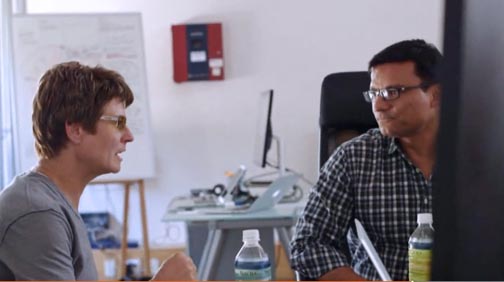Education, tech firm Declara partner for online platform

The Puerto Rico Department of Education recently partnered with Silicon Valley-based Declara to launch a pilot project to connect secondary-level teachers on a single content-rich platform where they will develop professional learning communities, support each other in their endeavors, share best practices and success stories.
Some 4,000 teachers across 400 computer-equipped middle and high schools will benefit from the pilot project that is being overseen by Declara’s local partner, Camera Mundi, which will provide support, said Nelson González, co-founder of Declara.
“During the implementation process, both engineering teams worked hand-in-hand to integrate [Education’s] identity systems with Declara, providing a seamless experience for the users,” he said. “Declara deployed its training staff to perform train-the-trainer sessions, and we are also supporting them on site with their user-training sessions.”
The pilot project, whose costs are being covered by Camera Mundi, provides teachers the “cutting-edge means of collaboration is the perfect marriage of instruction and newest technologies,” González said.
Declara has a social learning engine that learns how users interact through the use of semantic search, machine learning algorithms, and recommendations — and then delivers personalized suggestions on potential collaborators and resources for projects.
“Teachers are not only able to share best practices among one other, but they also have access to communities laden with content related to the current curriculum, which allows them to better prepare for their classes,” González said.
“One of the challenges in any profession is to stay on top of the latest breakthroughs and innovations. And teachers, who have enough on their plate with actual instruction itself, can now easily learn about teaching breakthroughs, updated or improved practices, or tips from their colleagues and even educational thought leaders — all of which can equip than to become even more effective in the classroom,” he said.
In the past 12 months, the platform has been adopted by the University of Pennsylvania; Sindicato Nacional de Trabajadores de la Educación, the largest teachers union in Latin America; and Education Services Australia, a national, nonprofit company owned by Australian education ministers, among others.
Lourdes Díaz-Ortíz, director of Education’s Technology and Curriculum Unit, said the project includes 10 teachers from 400 schools who share best practices on basic subjects, namely, social studies, fine arts, English, Spanish, and Science.
“One of the things we’re expecting is for this to promote the creation of practice communities through which our teachers can shape the best instructional and educational practices,” she said. “The platform is responsive and can be accessed from any device, which is in line with the agency’s mission to integrate more technology into the classroom.”
She said the pilot program will run through June 30, and depending on the outcome, could be expanded next school year.
“What’s good for 4,000 teachers is good for all of our 39,000 teachers,” Díaz-Ortiz said.






